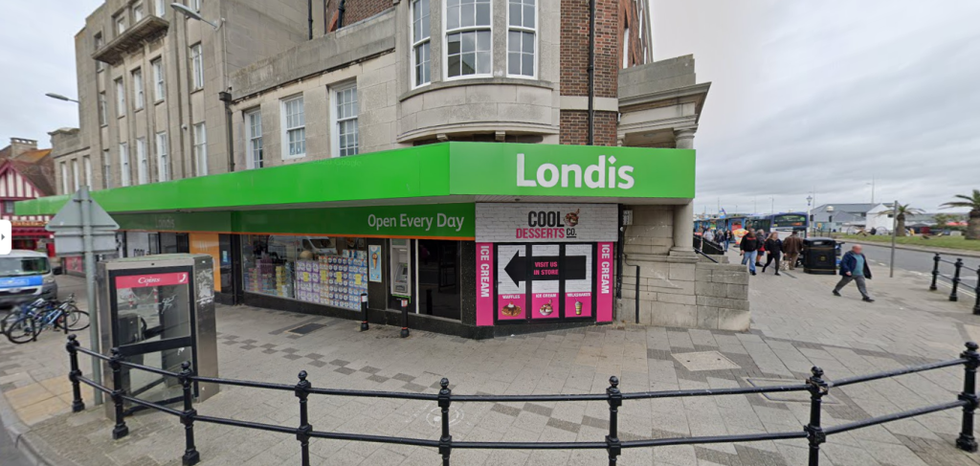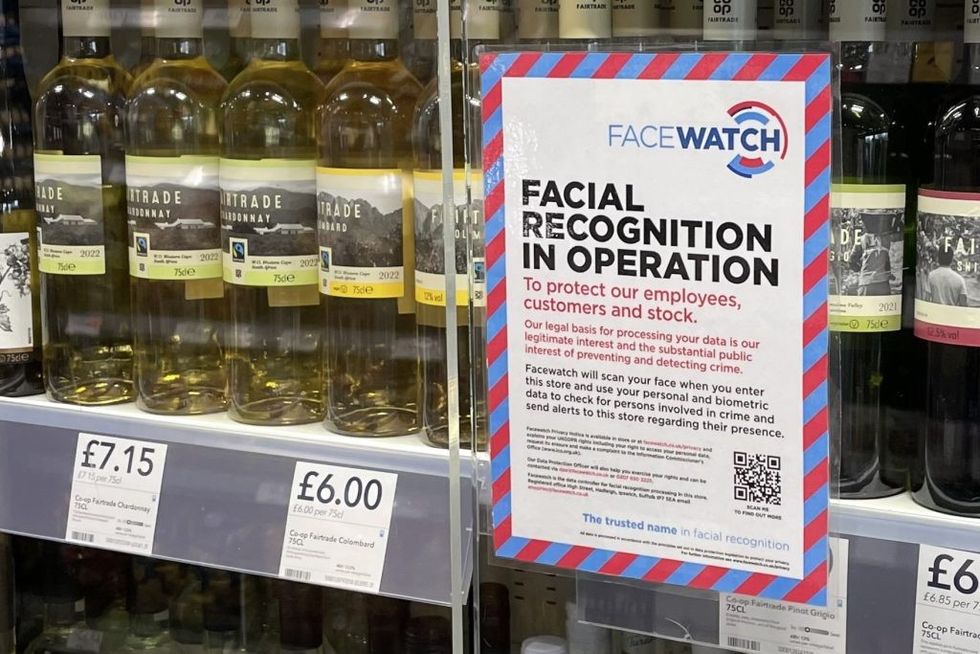Looking after the safety of both your staff and your customers in the midst of a crime wave takes a dedicated boss, and Dave Hiscutt is just that man...
Convenience stores have been thrust into the spotlight due to various challenges. Initially, the pandemic heightened their importance as vital supply hubs for communities. Now, amidst the lingering cost of living crisis, these stores have once again become essential lifelines for shoppers seeking to economise by shopping more frequently and locally.
This heightened reliance places a weighty responsibility on store owners, who are striving to cater to both customer needs and community welfare to the best of their abilities. However, amidst these challenges, instances of retail crime and staff abuse have been escalating, prompting serious questions about the responsibilities of retailers towards both shoppers and colleagues alike.
This concern for staff safety was notably underscored at the recent Asian Trader Awards, particularly in the Responsible Retailer of the Year category. Entries in this category highlighted the paramount importance of addressing staff safety concerns, with each retailer outlining the measures they have implemented. Dave Hiscutt, who manages four Londis stores and one Morrisons Daily within the Bassett group, emerged as the category winner, distinguishing himself with the effectiveness of his initiatives.

“In my perspective, responsible retailing is such a broad topic today. Of course, we've always had good relationships with the local council and the local authorities, with the police and everyone else. We've always made sure that we're complying in regards to the legislation and keep the customer safe. But, it isn't just about legislation; it's also about keeping our team safe. And, and I've been behind that as well,” Dave says.
The Bassett group, owned by veteran retailer Steve Bassett, has four Londis stores – three in Dorset and one in Somerset – and one Morrisons Daily store in Southampton. Dave, who has been working with Bassett for two decades now, is in charge of all stores, with store managers reporting to him.
The group has heavily invested in new ways to combat antisocial behaviour such as signing up to Facewatch, a facial recognition security system that sends alerts to authorised staff when a subject of interest enters a business. They have also installed StaffSafe security solution, which provides a live 24hr monitoring service, with five buttons installed behind the counter and in the office along with wristbands for all staff.
“All of this is quite substantial investment, but responsible retailing is around all of that, not just singly around legislation, or make sure you've got Challenge 25. We've got to make sure our teams, the people who work for us are safe as well, especially with the way the world is at this present point in time,” Dave says.
Within just one week of implementing the Facewatch system, there was a significant decrease in crime. They have since rolled FaceWatch into three of their sites after the successful trial in the Westham Road, Weymouth store. The other two sites don't have the same issues, Dave says.
The Facewatch cameras detect every single person coming into the store, with the data being kept for five days, if there's no incident attached to it. Within 6 seconds of someone who is on their watch list walking in, an alarm sounds behind the counter and in the back storeroom along with a visual notification of the offender on a device.
It shows two faces, the face of the person who is in the watch list and the one who has just walked in, so the staff can confirm the person. They have been using it since June last year and Dave says they have not had any false positives yet.
“At that point, the staff can just walk up to the person, before they've selected any goods, and say, ‘I'm sorry, you're not welcome’. What we found is Facewatch is very proactive as opposed to reactive,” Dave says, adding that confronting known thieves and troublemakers as they enter the store makes a big difference, instead of challenging them within, as they would possibly be aggressive then, often resulting in dangerous situations.
“We've had various violent incidents and most of that is driven by someone has come in the store, undetected, and they've selected goods and then they've gone to leave the store with those goods and we've tried to retrieve them. Now by tackling them at the door and saying that ‘I'm sorry you're not allowed in’ and telling them to leave, they've not put the effort into selecting those goods and concealing it,” he explains.
During the three-month trial last year, they noted 40 alerts and 44 incidents in June, 36 alerts and 17 incidents in July and 45 alerts and 18 incidents in August. While the alerts were still high, peaking as the watchlist lengthens, these weren’t necessarily converting into incidents, as potential offenders have learned not to target the store at all, Dave notes.
“All it does is displacing a crime, it doesn't cure it, but equally, I've got to keep my people safe,” he adds.
They are now getting around 10 incidents on Facewatch, but Dave says they are different people each time. “Obviously it's hard, but we are getting a chunk of alerts come through which aren't converting into incidents,” he adds.
StaffSafe also supports the staff to deal with the problems and deescalate issues quickly.
The StaffSafe buttons have various functions, and Hiscutt says the audible alert is particularly effective. When pressed, the alert will cut out the radio playing in store, then start a siren noise, followed by a recorded announcement informing that the store is remotely monitored with the ability to dispatch police etc.
“That makes someone think twice, it will stop them and quite often they put the goods back because they know they're being watched, without any member of staff having to actually go and physically intervene,” Dave says.
There is a person on the other end who can see a live thread of their CCTV and hear everything being said in the store which they also record. The operator can talk over the PA system and interact with an offender, the purpose being to defuse situations: but they can also dispatch police and act in the interests of the team where necessary.
He explains a recent incident where the alert helped diffuse an escalating situation.
“The other day, there were females in the store and they were becoming aggressive with members of staff. I was in the store at the time and it was one of those situations you knew was going to go the wrong way. So I press the red StaffSafe button and an alarm goes off across the shop, followed by a message, externally monitored and all. It then connects to an external call centre where the operator sees our CCTV and speaks through our sound system, ‘I can hear what is being said and record that for evidence as well’. As soon as we press that, the guys go ‘I don't know what's going on here’. And it makes them deescalate it almost immediately because it suddenly puts them out of sorts,” he says.
The decision to invest in the security systems came after a member of the staff was brutally assaulted in the store and Dave says these systems have since made the stores relatively calm.
“You do add people [to the watch list], people change in the area and you got holiday makers but the issues we were having, I mean we were literally tearing hair out and we didn't know what to do. We were trying to work out how do we keep the guys safe because the final straw was one of the lads beaten and dragged across the floor by a prolific thief,” he says.
Dave also takes a lead on the local efforts to tackle the issue of retail crime. He chaired the Weymouth Shop Watch scheme - a partnership between retailers and local authorities to prevent theft and make shopping areas safer - for nearly 8 years and still have a hand in the management of it. He worked closely with Weymouth’s business improvement district to shape its business plan which includes the provision of a ‘Town Ranger’ who supports the town centre businesses with the prevention of crime, helping to fill in theft packs and liaising the town CCTV control room and the police.
The Shop Watch scheme has a ‘three strikes and you're out’ rule, which excludes repeat shoplifters from the stores in the scheme and subjects them to greater penalties. The Shop Watch radio links businesses together with the Town Ranger, Community Safety Patrol Officers and CCTV Operators.
“All the stores who are a member have a radio in, and we can all communicate with each other so we can give a heads up. So when a prolific thief is around, we can even give another store heads up and say, ‘look, you've got such and such is coming towards you’,” he explains.

With the government finally deciding to make assaults on retail workers a standalone criminal offence, Dave hopes that it will make a difference.
“I think it's been a long time coming. I mean, the amount of times that I've had staff who have been assaulted, and it's just been swept under the carpet, I've never felt that it's been dealt with the tenacity that it should be,” he comments.
He thinks a higher offense will give police officers more teeth to charge the offenders, and more importantly he believes that assault on an emergency worker should be a crime in itself.
“Emergency workers, police officers, they should never have to deal with them when doing their jobs, as far as I'm concerned. But they're given body armor and batons and everything else. My staff turn up to work in a T-shirt and trousers, and they've got to deal with the same types of people and sometimes similar violent incidents that the police do, without that equipment,” he points out.
In the last two years, they have replaced the chillers and freezer cabinets to newer energy- efficient models, boosting their sustainability credentials in the process.
“That was quite a big investment. But yes, it's balances because fridges have been one of the biggest drains on our power consumption. So by the end the day to make sure that we've got the equipment essentially efficient is obviously massively important,” he says.
Food wastage is also high on their agenda, and they have signed up to Gander App to support customers looking for a bargain. They also get a huge amount of beneficial data in regards to how ‘reduced to clear’ performs in the stores.
Behind all these investments and initiatives lies a sound business strategy – to keep evolving and to find new ways to drive the business forward; and especially in the current climate, when the need to keep costs down, Dave says driving efficiencies and, ultimately , boosting the bottom line is more important than ever.








